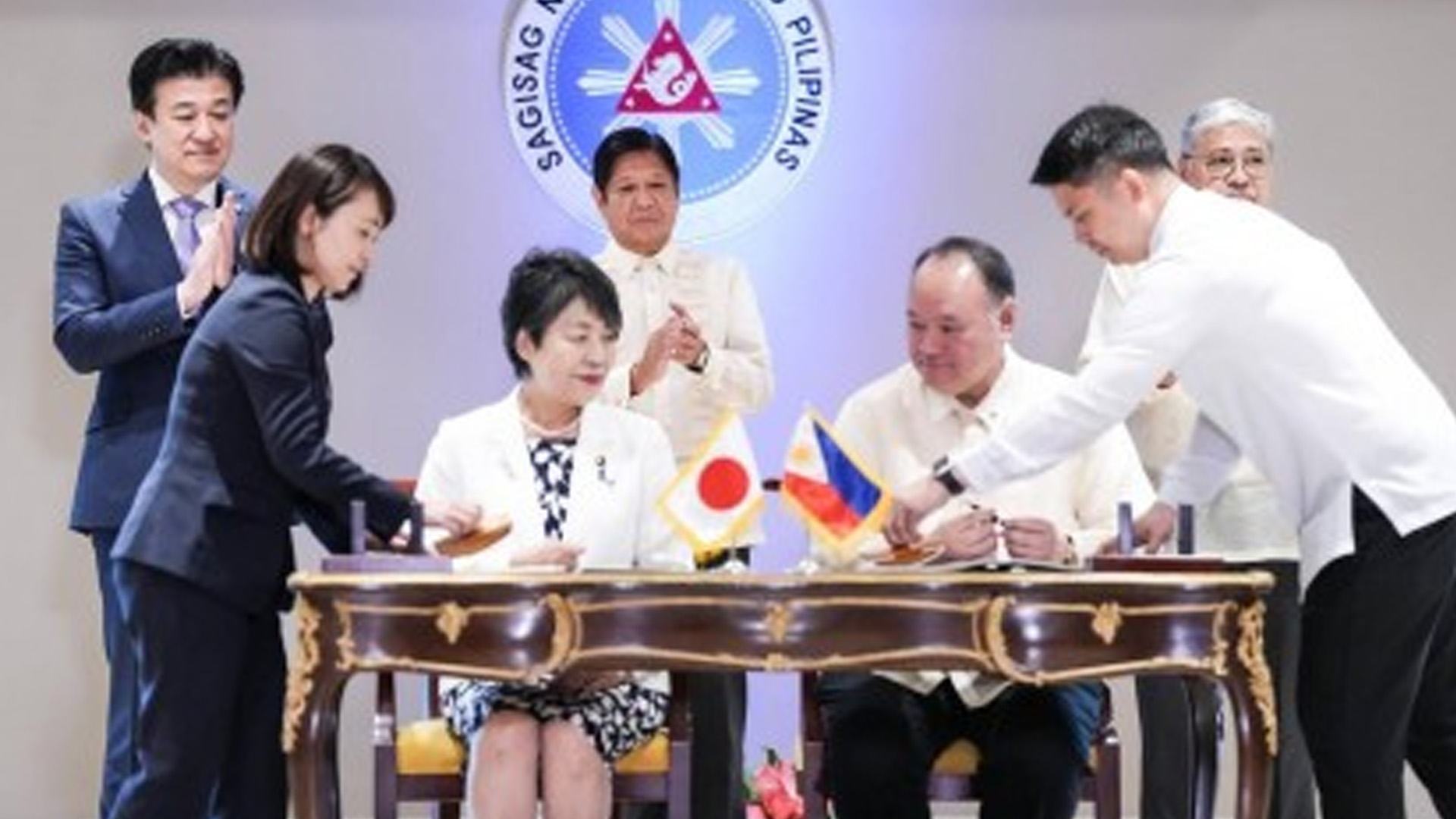The military ties between the Philippines and Japan are growing stronger. This is thanks to the recent approval of the Reciprocal Access Agreement (RAA) by the Philippine Senate.
On Dec. 16, 2024, Senate Resolution No. 1248 was passed without opposition. This means the ratification of the RAA is complete on the Philippine side. This agreement was first signed on July 8, 2024, during the 2nd Philippines-Japan 2+2 Meeting, and needed the Senate’s nod to move forward. The RAA is meant to boost cooperation and help with joint military exercises between the Armed Forces of the Philippines (AFP) and the Japan Self-Defense Forces (JSDF). All that remains is the parallel process on Tokyo’s end, requiring concurrence in the Japanese Diet for the RAA to be fully realized.
Japanese Ambassador Endo Kazuya praised the Philippine lawmakers for their support. In a statement, the Japanese Ambassador to the Philippines expressed his appreciation for the unwavering support of the legislators to the agreement. “Our countries have long stood together as strategic partners, and this milestone reaffirms our shared commitment to a peaceful, stable, and prosperous Indo-Pacific region,” he stated in a post on X.
He noted that this agreement shows the strong partnership between the two nations. Together, they aim for a stable and peaceful Indo-Pacific region.
The Department of Foreign Affairs (DFA) also welcomed the Senate’s concurrence of the RAA ratification. They said this will strengthen ties with Japan, especially as the region faces security challenges. The RAA is the third of its kind of agreement for the Philippines, comparable to the country’s Status of the Visiting Forces Agreements with the US and Australia. Meanwhile, this is Japan’s second, following a similar agreement with Australia.
In a statement, the DFA said, “This action will further strengthen our strategic partnership with Japan. As the security environment in the region is increasingly challenging, the Department of Foreign Affairs believes the RAA between the Philippines and Japan will firmly contribute towards maintaining a secure and peaceful Asia-Pacific.”
The talks begin
President Ferdinand R. Marcos Jr. and Japan’s Prime Minister Fumio Kishida kicked off the RAA talks on Nov. 3, 2023, during a meeting at the Malacañan Palace in Manila. President Marcos highlighted the benefits these agreements bring for defense personnel and towards peace in the area. “We are cognizant [of] the benefits of having these arrangements both to our defense and military personnel and to maintaining peace and stability in our region,” Marcos said back then.
Prime Minister Kishida mentioned the importance of working closely with the US and the Philippines in these talks. The RAA was signed by both countries on July 8, 2024. This agreement outlines how their military forces can train and work together. Kishida said: “[The] decision was made to start negotiations on the RAA and (we) agreed to further strengthen the trilateral cooperation among Japan, Unthe ited States, and the Philippines.”
Defense Secretary Gilberto Teodoro emphasized that this deal enhances security and strengthens bilateral relations. He noted it will also improve responses to humanitarian crises. “By adding the vital aspect of security which creates a holistic dimension or adds a holistic dimension to our bilateral relations,” said Teodoro about the landmark deal. “It will also add to the multilateral efforts that both our governments are doing to make sure that our region, with respect to international law, we (worked) hand in hand in creating a global architecture which will ensure sustainable peace and stability, particularly in our area.”
The RAA is similar to the Philippines’ Visiting Forces Agreements with the US and Australia. Japan’s Defense Minister Minoru Kihara shared his appreciation for the RAA, saying it deepens defense ties between the two nations. “The relationship between Japan and the Philippines has seen great strides in the field of defense cooperation and exchanges and I welcome the signature of the Japan-Philippines RAA which took place moments ago, representing the deepening cooperative relationship between our two nations,” he said.
Senate public hearing on the RAA
A public hearing on the RAA took place on Nov. 25, 2024. Senator Imee Marcos, who led the hearing as head of the Senate Committee on Foreign Relations, expressed hope for more military cooperation and exercises. “The RAA gives recognition to the promotion of international order based on the rule of law given the shared interests of the Philippines and Japan to global and regional peace and stability,” Senator Marcos said. She also pointed out that “defense cooperation and military exercises” are aimed at responding to the “current security landscape, such as, but not limited to the enhancement of technical and cybersecurity needs, development of maritime domain awareness capabilities, expanding training and education exchanges, and the strengthening of HADR [humanitarian assistance and disaster relief].”
Teodoro clarified that through the newly ratified RAA, the Japanese military can now be a part of the joint exercises in the Philippines, unlike before that the previous military exercises of the two countries were classified as “maritime cooperative activities” instead of “joint military exercises.”
Trust between Manila, Tokyo
Security expert Chester Cabalza believes this agreement shows trust between the Philippines and Japan. He noted the quick movement to finalize the RAA reflects shared security concerns. “The hastiness and precipitation for the enactment of the RAA is valuable and valid due to the ambiguity and complexity of the regional security environment,” added Cabalza, also the president and founder of International Development Security Cooperation.
Teodoro also mentioned that the Philippine leadership is considering similar agreements with countries like Canada, France, and New Zealand positive that such deals can improve cooperation among the nations. “They will all look the same, they will allow (the) Armed Forces of these different countries to operate with the Philippine Armed Forces within the Philippine territorial jurisdictions and vice versa. So it will increase interoperability between these countries,” he said, adding that talks for possible RAAs with other countries are being eyed in 2025.
In a recent exclusive interview with the Philippine News Agency, AFP Spokesperson Colonel Francel Padilla alluded to these opportunities of forging similar pacts with more partner states. “Sa ating mga diplomatic engagements, kasama na diyan siyempre ang ating mga bilateral and multilateral engagements. So it is our hope sa Armed Forces of the Philippines na magkaroon pa tayo ng mas marami ring partnerships with other well-meaning nations (“When it comes to our diplomatic engagements, part of those would, of course, be our bilateral and multilateral engagements. So it is our hope in the Armed Forces of the Philippines that we develop more partnerships with other well-meaning nations)… joint exercises somewhat leading to what we have with the US, which is the Visiting Forces Agreement,” the spokesperson stated. (PNA)







